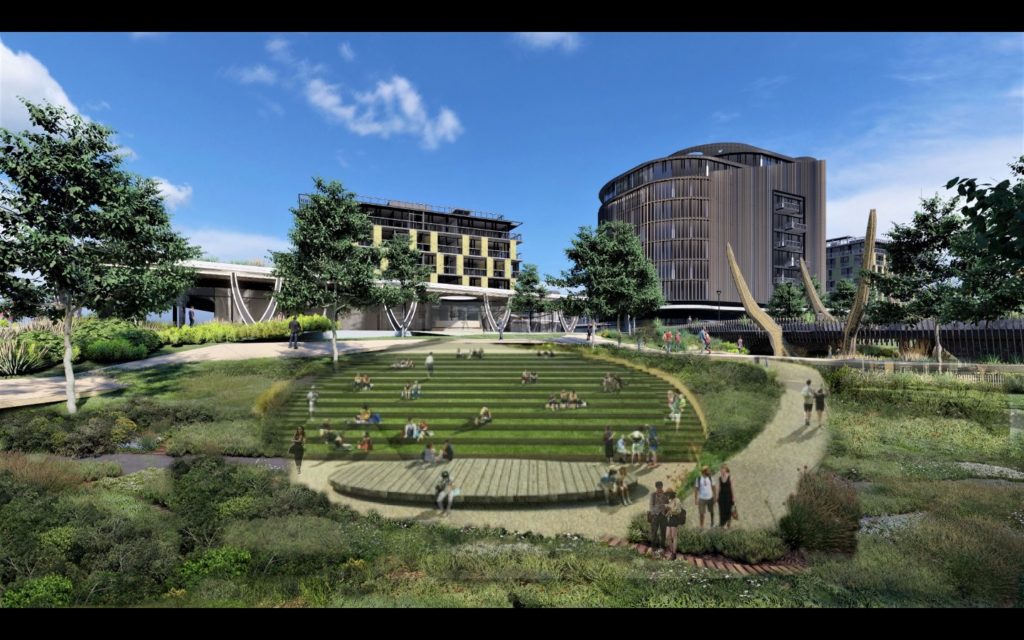After years of being embroiled in a legal battle with Heritage Western Cape and much pushback from residents in the area, the Western Cape Department of Environmental Affairs and Development Planning has approved the River Club redevelopment in Observatory.
Due to site’s historic and environmental qualities, the project has been delayed until now. Liesbeek Leisure Properties Trust purchased the the 14.7ha property from Transnet in 2015 for R12m.
A campaign called Stop the River Club Development was started to gain support to halt the development. Their concern was that the development was planned “on a protected floodplain and conservation area that has huge environmental and heritage significance for the City of Cape Town (CoCT) and its people”.
“If approved, this development will destroy the flood plain and the fragile biodiversity of the area, while ignoring the cultural and heritage significance this space holds for the First Nations people and all South Africans. This development represents the capture of public land earmarked for natural and heritage conservation, and will set a catastrophic precedent for all heritage and ecologically sensitive areas across Cape Town. It will signal that protected, sacred land is available for private profit and that CoCT- mandated public consultation and community opposition can be ignored,” a statement read.
The Liesbeek Leisure Properties Trust won the eight-year-long court battle in April 2020.
The City of Cape Town says the redevelopment will aid the economy and provide upliftment for many struggling due to the COVID-19 pandemic. Thousands of jobs have been lost in the construction industry in recent weeks, further employment option will be available via the retail and office space the development will offer.

Liesbeek Leisure Properties Trust says the development will open up 6 000 direct jobs, 5 239 jobs in the construction phase and 13 000 indirect and induced jobs.
To ensure the heritage of the area is not lost, developers have added a Heritage Culture and Media Centre into the plans that allows members of the public to learn about the historic value of the area.
“The planned Heritage Cultural and Media Centre will be operated by the First Nations people and will provide critical job opportunities to members of these communities. This initiative follows extensive and constructive engagements with the senior Indigenous Khoi and San leaders comprising the First Nations Collective. The First Nations’ rich history will be further commemorated through the inclusion of symbols central to the First Nation’s narrative in the landscaping, architectural iconography and educational signage in the open spaces,” Liesbeek Leisure Properties Trust spokesperson Jody Aufrichtig explains.
Other features include an indigenous medical garden, a heritage-eco trail and a garden amphitheatre.
Roughly 20% of the development will be dedicated to residential use, while a large portion will offer safe recreational public space where residents can run, cycle and sit.
“A large part of the development will consist of safe recreational public spaces including running and cycling pathways, public viewing areas and seating areas along the rehabilitated and clean riverbank. Twenty percent of the development will be allocated to residential use, of which one fifth will be dedicated to developer-subsidised inclusionary housing,” adds Aufrichtig.
The Trust says the development will be 65% open landscapes to allow space for indigenous flora and fauna, as well as pedestrians.
Picture: The River Club

